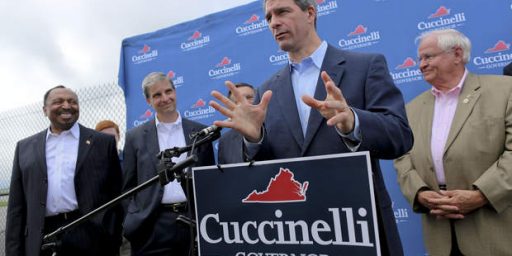BUSH AT URBAN LEAGUE
Bill Sammon reports on President Bush’s outreach to black voters, which is drawing praise from some rather unlikely quarters:
“The Republicans are not going to leave African-American voters to the Democrats this time,” said Donna Brazile, who managed the 2000 presidential campaign of Vice President Al Gore. “I already sense a competitiveness, following the 2002 election, among Republicans.
“I’ve heard African-Americans say of Republicans: They’re in our back yard,” she added. “I say ‘No, they’re in our house.’ They’re still trying to figure out what it looks like, but they are competing for African-American votes. And I don’t think that’s a bad thing.”
And the strategy here strikes me as a smart one. Rather than going hat-in-hand to the despicable NAACP or clowns such as Jesse Jackson, Bush is instead going after voters with whom he can make common cause:
By making his case before the Urban League, which focuses more on economic opportunity for blacks than politics, the president is continuing his strategy of appealing to blacks on pragmatic issues rather than ideological ones to peel away a few more percentage points from the overwhelmingly Democratic bloc.
For example, Mr. Bush has made inroads with his faith-based initiative, which appeals to inner-city churches by allowing them to provide certain government services to the disadvantaged. And he impressed many blacks earlier this month by emphasizing his $15 billion anti-AIDS effort during a five-nation tour of Africa.
All the while, the president has refused to be drawn into high-profile meetings with the Congressional Black Caucus or strongly critical civil rights leaders such as Mr. Jackson.
The White House appears to have made the political calculation that such groups will never give Mr. Bush credit, no matter how substantial his overtures to ordinary black Americans.
Quite right. Indeed, this could be the beginning of a major breakthrough in US race relations: treating blacks as a diverse group of Americans with widely varying interests, needs, and beliefs rather than a monolithic voting block to be pandered to.




